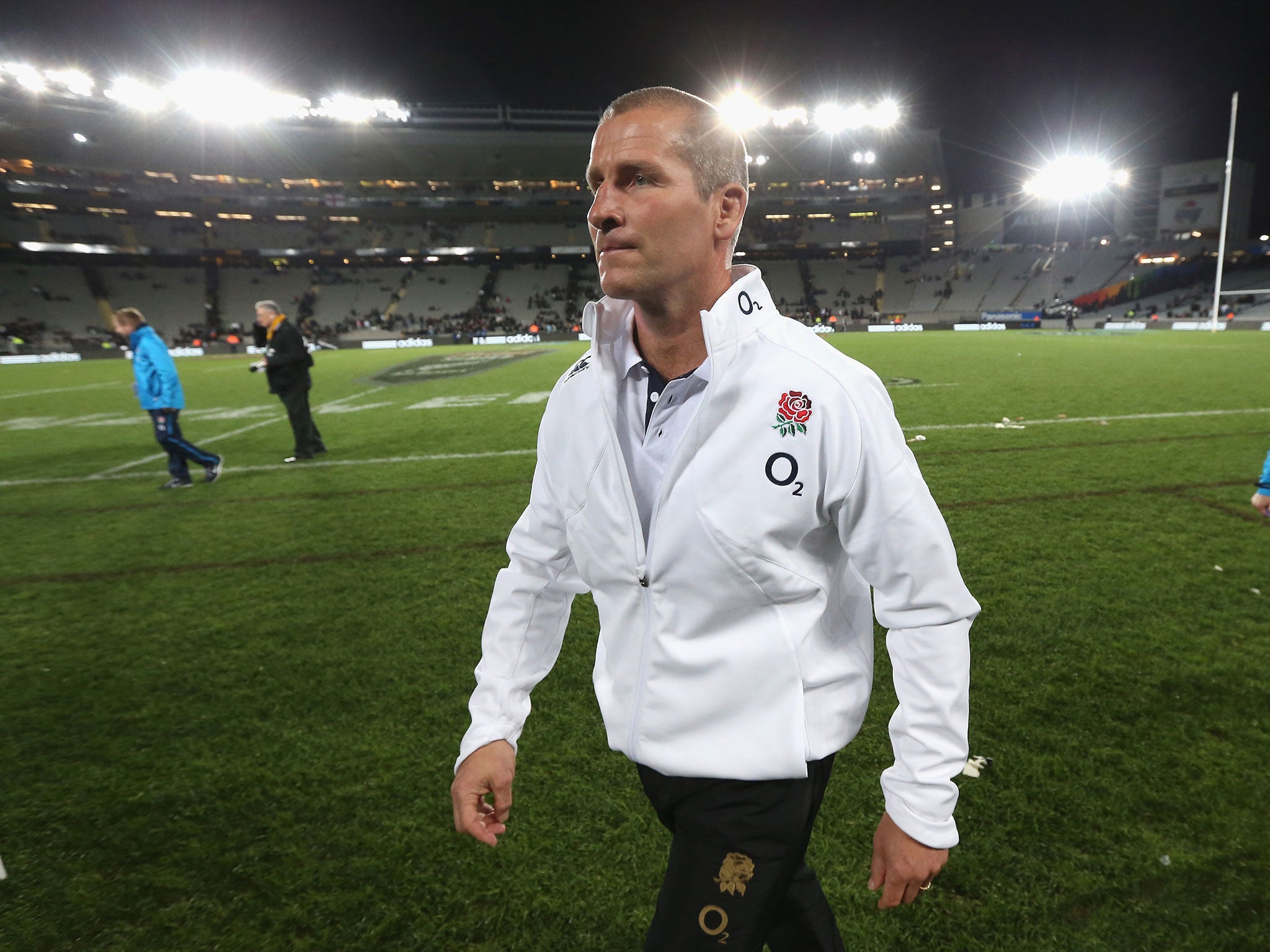Stuart Lancaster’s long-term deal makes sense – a rarity for a decision taken by the RFU
COMMENT: This deal gives England a head-start to prepare for 2019 World Cup

Your support helps us to tell the story
From reproductive rights to climate change to Big Tech, The Independent is on the ground when the story is developing. Whether it's investigating the financials of Elon Musk's pro-Trump PAC or producing our latest documentary, 'The A Word', which shines a light on the American women fighting for reproductive rights, we know how important it is to parse out the facts from the messaging.
At such a critical moment in US history, we need reporters on the ground. Your donation allows us to keep sending journalists to speak to both sides of the story.
The Independent is trusted by Americans across the entire political spectrum. And unlike many other quality news outlets, we choose not to lock Americans out of our reporting and analysis with paywalls. We believe quality journalism should be available to everyone, paid for by those who can afford it.
Your support makes all the difference.Andy Robinson never quite made it to a World Cup as head coach of England; Brian Ashton was asked to plan for one in five minutes flat, somehow took his side to the final and was unceremoniously sacked six months later; Martin Johnson was given a three-year run at it, but disappeared in a fog of poor selection and tawdry indiscipline and has barely been seen since.
Only Clive Woodward has had two shots at winning the grandest prize in rugby, and even that was by chance. Had there been a realistic alternative after the 1999 failure, he would have gone the way of all coaching flesh long before that triumphant night of nights in Sydney.
The Rugby Football Union’s decision to engage the services of Stuart Lancaster and his closest colleagues – the defence technician Andy Farrell, the forwards strategist Graham Rowntree, the attacking skills specialist Mike Catt – on an unprecedentedly long-term basis may not please the hang-’em-high types who like to read of a big-name sacking over their poached eggs, but the Twickenham top brass are at least trying something different.
To this day, the stench of the Ashton affair – quite the most misjudged, bone-headed episode in recent RFU history – lingers in the nooks and crannies of Twickenham, even though most of the men responsible have left the organisation. But with the current governing body’s management team, led by the avuncular but ultra-savvy chief executive, Ian Ritchie, making such a success of cleaning the stables, the bad smell is definitely fading.
Ritchie decided early on that as continuity was vastly preferable to disunity, his choice as head coach would need private encouragement, unstinting public support and, most importantly, time.
Lancaster, dismissed by some as an all-but-anonymous technocrat when compared with the stratospherically high-profile Johnson, has been granted all three of those gifts, and while he will inevitably be seen by those who opposed his appointment in the first place as a deeply fortunate man, it is difficult to argue at this juncture that he has not made the most of it.
This latest RFU strategy makes complete sense, not because it has enabled the coach to take care of at least one piece of business ahead of the most challenging 12 months of his professional life, but because it gives England a head start in their preparations for the 2019 World Cup in Japan – a tournament they are more likely to win, if truth be told, than next year’s competition on home soil.
England have pocketed the last two Under-20 global titles and, according to many of those working in age-group coaching circles and Premiership club academies, the players now percolating their way through the system have greater potential than any previous generation of ambitious wannabes.
Lancaster, as near to a confirmed workaholic as makes no difference, knows everything there is to know about each and every one of them. If asked, he could probably tell you precisely when Maro Itoje, the sensational young Saracens forward, will make his full international debut – even though Itoje has yet to be formally listed in his club’s senior squad.
Lancaster is not daft. Neither is Ritchie. Both men know that a Six Nations wooden spoon after Christmas, followed by a pool-stage blowout at the World Cup, would leave the six-year plan in tatters. The “events, dear boy” syndrome works in rugby, just as it does in politics. But by making this declaration of intent, the RFU has at least given the union-loving public a clear vision of the preferred direction of travel. And that, heaven knows, is something new.
Join our commenting forum
Join thought-provoking conversations, follow other Independent readers and see their replies
Comments